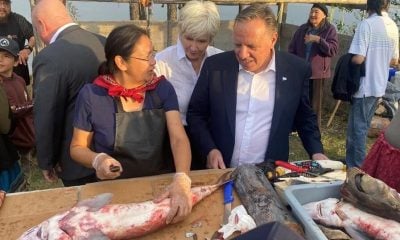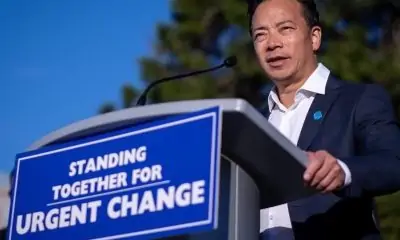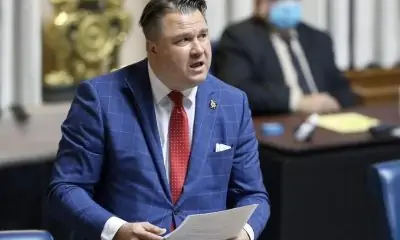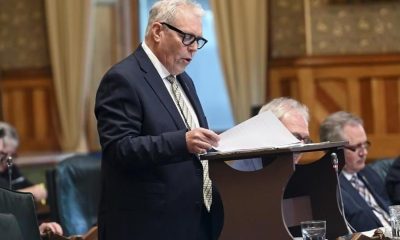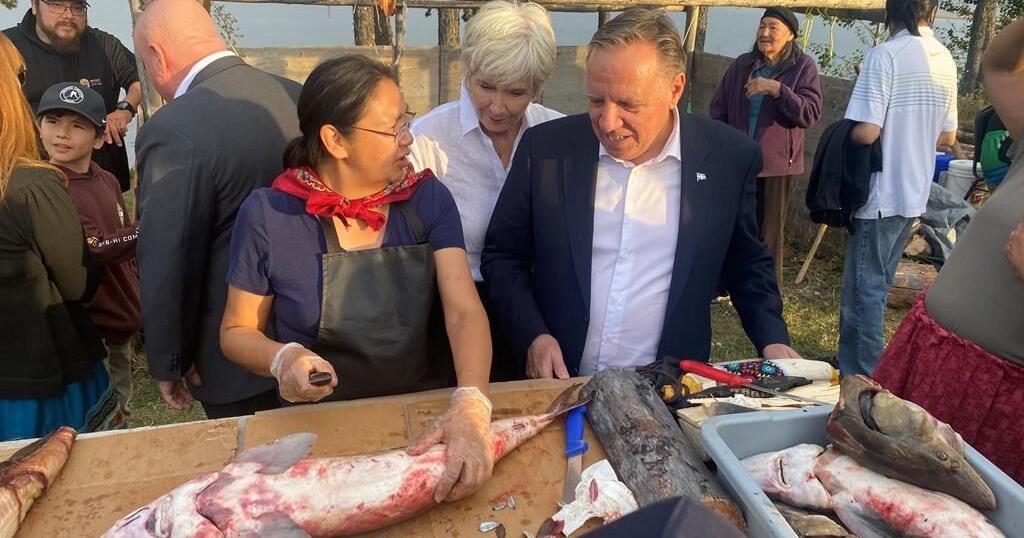Canada — Off-the-record sources have confirmed that Canada is developing a regularization program but no timelines have been announced or guarantees provided that this program will be inclusive.
Oxfam Canada, Climate Action Network, Doctors of the World and the Ligue des droits et Libertés are joining with Migrant Rights Network – Canada’s largest migrant-led coalition – on Wednesday, September 14, 2022 to call on Prime Minister Trudeau and the next parliamentary session to implement a comprehensive regularization program without delay that ensures permanent residency for all 500,000 undocumented residents, as well as full and permanent immigration status for all 1.2 million migrant workers, students, refugees and families in the country.
The media briefing, which includes undocumented migrants from across the country, is taking place in advance of massive protests where thousands of people are expected to take to the streets in Toronto, Montreal, Vancouver, Ottawa, Edmonton, Charlottetown, Fredericton, Guelph, Sudbury, Miramichi, St. John’s and Clarksburg on Sunday, September 18 in the lead up to Parliament’s return (details of actions below). Regularization is an historic opportunity for Prime Minister Trudeau to correct unfairness in the immigration system and change the lives of half a million undocumented people which will ensure increased healthcare, climate and global justice and improve working conditions. Over 480 civil society organizations have already endorsed this call for immigration justice.
WHAT: Briefing by undocumented migrants and civil society organizations in English and French
WHEN: Wednesday, September 14, 2022 (9am Vancouver / 10am Edmonton / 12pm Montreal / 1pm Halifax)
WHERE: Online via Zoom – Pre-registration required, please click here.
WHO: Danilo De Leon (Undocumented migrant leader, Edmonton), Caroline Michael (Undocumented healthcare worker, Toronto), Nina Gonzalez (Immigrant Workers Centre), Caroline Brouillette (National Policy Manager, Climate Action Network), Lauren Ravon (Executive Director, Oxfam Canada), Pénélope Boudreault, national operations director (Doctors of the World), Laurence Guénette, Executive Director (La Ligue des droits et libertés), and Syed Hussan (Migrant Rights Network Secreteriat)
Background
-
There are at least 1.2 million people in Canada on temporary work, study or refugee claimant permits issued in Canada each year. Most migrants in low-waged work do not have access to permanent residency so eventually they are forced to either leave Canada or stay in the country undocumented. Migrant farm workers recently testified that these temporary migration schemes are “systematic slavery”.
-
Many are unable to return to sending countries because of war, discrimination, lack of economic opportunities and/or because they have built relationships in Canada. Today, there are over 500,000 undocumented people in the country.
-
As a result, there are at least 1.7 million migrants – 1 in 23 residents in Canada – who do not have equal rights.
-
Migrants are excluded from healthcare and social services and cannot unite with their families. Lack of permanent resident status makes it difficult, and often impossible, for migrants to speak up for their rights at work or access services, including those they may be eligible for, because of a well-founded fear of reprisals, termination, eviction and deportation.
-
Migrants – mostly low-waged, racialized, working class people – are deemed essential but are excluded from rights. Thousands of migrants lost their lives and livelihoods in COVID-19 while working in farms, long-term care homes, construction, cleaning, and delivery work.
-
Comprehensive regularization (a program that includes all 500,000 undocumented people) will address a historic wrong; improve working conditions by giving migrants the power to protects themselvesand; guarantee public health; and add at least $1.1 billion dollars to the public purse per year through contributions by employers who currently don’t pay taxes.
-
Canada created the “Guardian Angels” program for some refugee and undocumented healthcare workers, which expired in August 2020. The Temporary Resident to Permanent Resident (TR to PR) program was created in May 2021, and expired in November. These programs excluded the vast majority of racialized, low-waged migrants. No permanent changes have been made to ensure immigration justice.
-
Nearly 10,000 people have signed a petition in support of these demands: www.StatusforAll.ca
Actions across Canada and Media Contacts for Sunday, September 18, 2022
TORONTO, ON: Rally & March for Rights, Regularization & Status For All
Sep 18, 2:00pm, Christie Pits Park, March to Deputy PM’s Office
Contact: Rajean Hoilett, 289-923-3534, Migrant Rights Network – Ontario
MONTREAL, QC: Rally & March – Un Statut pour tous et toutes – on ne laisse personne pour compte / #StatusForAll: No One Left Behind
Sep 18, 2:00pm, Place du Canada (corner of René-Lévesque and Peel)
Media Contact: Hady Anne (En/Fr), 514 358 8836, Solidarity Across Borders
VANCOUVER, BC: Rally – Rights, Regularization, Status For All
Sep 18, 2:30 PM, Grandview Park. 1657 Charles St, Vancouver
Media Contact: Byron Cruz, Sanctuary Health, (604) 315-7725
EDMONTON, AB: Rights, Regularization, Status for All!
Sep 18, 12:00 PM, Sir Winston Churchill Square. 10404 104 Ave NW.
Media Contact: Clarizze Truscott, 780-998-2885, Migrante Alberta
OTTAWA, ON: Migrant Regularization March – Status For All!
Sep 18, 2:00 PM, Confederation Park. Elgin St and Laurier Ave W, Ottawa
Contact: Aimee Beboso, 613-255-1921, Migrante Ottawa
SUDBURY, ON: Sudbury & Region: Status For ALL – Community Gathering
Sep 18, 1:30pm, Flour Mills Community Farm. 736 Bruce Ave.
Contact: Tt Scott, communications@sudburyworkerscentre.ca, Sudbury Workers Education and Advocacy Centre
CHARLOTTETOWN, PE: Status for All: Reimagining PEI
Sep 18, 1pm, Victoria Park Pavilion, 36 Victoria Park Driveway
Media Contact: Ryan MacRae, ryan@cooperinstitute.ca, Cooper Institute
MIRAMICHI, NB: Rights, Regularization, Status for All
Sep 18, 2pm, Queen Elizabeth Park Town Square. 141 rue Henry Street
Contact: Sonia Aviles, 289 990 1349, Migrant Workers Alliance for Change
FREDERICTON, NB: Status for All Day of Action Fredericton – Madhu Centre Organization Launch
Sep 18, 1pm, 577 Hillcrest Drive
Media Contact: Kalum Ng, info@madhucentre.ca, Madhu Centre
GUELPH, ON: Public Meeting: Immigration: Who Benefits? Who Suffers?
Sep 18, 3:00 PM, 10C. 42 Carden St. , 3rd Floor, Activity Room.
Media Contact: Susan Rosenthal, Guelph Justice for Workers, guelph@Justice4workers.org
CLARKSBURG, ON: Rights, Regularization, Status for All
Sep 18, 10am, Clark Street and Main Street
Media Contact: Amaris Terner, 416 417 3520
ST. JOHN’S, NL: Status for All Picnic
Sep 18, 1pm, Bannerman Park
Media Contact: Adi Khaitan, 709-693-6032
Related




